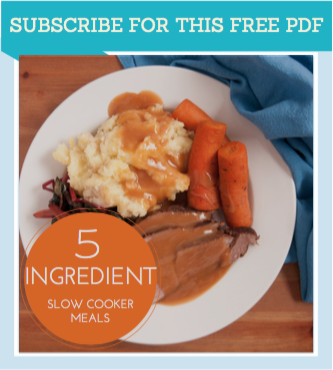Michael Stanson is THE last baby in our family. I repeat. The last baby. Heck, he’s already a toddler and I’m just now getting to a post featuring him, his favorite foods, and the best first foods for baby [get ready for Michael overload in this post].

I’m sometimes forget that I’m not just a short order cook for toddlers and preschoolers. I’m actually a registered dietitian nutritionist who worked darn hard for those degrees and has a lot of knowledge behind her regarding food and nutrition. Phew! So much so I thought hey, why not put together a little blog post with some of the best first foods for babies. Lord knows I have the experience!
Have additional questions? Send me an email or message on Facebook or Instagram. I’m here for YOU! Now to the meat of this post…

FIRST FRUITS:
Avocado: Full of essential nutrients and fats your growing baby needs, ripe, creamy avocados are easily digested and well tolerated by most babies!
Banana: Bananas are sweet and soft, making them easily digestible for most babies. You can mash a banana with a fork for your baby to spoon-feed or let them pick up soft pieces from their tray.
Blueberries: The blue pigment in the skin of blueberries is a powerful antioxidant which research has shown to be a protectant against cancer. They are also rich in vitamin C and beta-carotene.
Pears: Touted as the least allergenic food, you can purchase fresh or canned in 100% fruit juice! If you buy fresh, consider softening a few slices or chunks in the microwave or steaming before giving to baby.

FIRST VEGGIES:
Sweet Potato: Packed with nutrients like Vitamin A and beta carotene— which are essential for eye health. They also have a high fiber content which helps keep baby more regular.
Squash: Filled with Vitamin A and potassium, butternut or acorn squash make a nutritious addition to your baby’s diet. These are great options when in season during the fall!
Carrots: High in beta-carotene and Vitamin A, making an excellent first food for baby when steamed, microwaved, or roasted. Just be sure to give baby soft pieces as chewing a raw carrot may be tough without teeth!

CEREAL & MEAT:
Oatmeal: Contrary to popular belief, cereal does not need to be a first food for baby. But if you decide to go that route, simple oatmeal makes a high fiber and whole grain option! Just be sure to use an unflavored version or make your own at home.
Brown Rice: Rice does not contain gluten, a protein found in wheat, oats, barley, and rye that may cause a food allergy or sensitivity. Brown rice is a whole grain and easily digested by most babies.
Red Meat: An easily absorbable source of iron for you and your baby, which baby stops getting from Mom around 6 months of age if breastfed. Try ground beef crumbles or small pieces of cooked steak.

Ok and just one more oldie but goodie photo that reminds me of my forever kitchen helper, and the forever big sister to Mr. Michael:

If you’re looking for more resources on what, how much, or when to start feeding solid foods to you baby, you might also like these posts:
Baby Feeding Tips: What and How Much
Tips for Feeding a Baby and a Toddler
10 Resources for Starting Solids Foods with Baby
The Complete Guide to Starting Solids






Leave a Reply